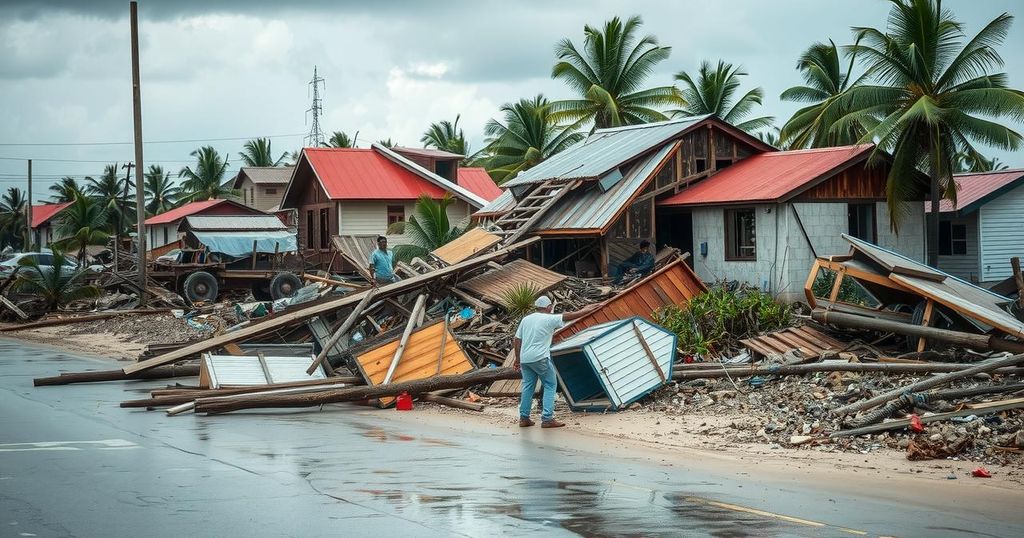Cyclone Chido has caused extensive damage in Mayotte and Mozambique, with rising fatalities and displacement. Over 380,000 individuals have been affected, necessitating urgent humanitarian assistance. Aid organizations are mobilizing support to address the pressing needs for shelter, food, and mental health care for those impacted by the disaster.
Cyclone Chido wreaked havoc across Mayotte and Mozambique, resulting in severe humanitarian crises in both regions. The cyclone, which reached wind speeds of 243 km/h, struck between December 14 and 17, 2023, affecting Madagascar, Mayotte, and northern Mozambique. In its wake, it left extensive destruction, power outages, and disrupted communication lines, plunging hundreds of thousands into distress. The death toll continues to rise in Mozambique, with at least 120 fatalities reported, while Mayotte records 35 deaths and 2,500 injuries. The devastation is palpable as entire communities have been rendered homeless, particularly in the most affected districts, Mecúfi and Metuge, where nearly all homes have been destroyed, leaving families vulnerable as the rainy season begins. Emergency responders, such as the humanitarian organization HI, are initiating assessments and mobilizing support for affected individuals, emphasizing the urgent need for shelter, food, and mental health support.
The passage of Cyclone Chido has had devastating effects across the southwestern Indian Ocean, with particular severity felt in Mayotte and Mozambique. As an unprecedented natural disaster, the cyclone’s impact has been compounded by pre-existing vulnerabilities within these regions, where infrastructure and resources were not adequately equipped to handle such severe conditions. The humanitarian crisis now demands an immediate response from local and international agencies to address the urgent needs of affected populations, including those who are particularly vulnerable, such as children and those with disabilities.
In summary, Cyclone Chido has significantly affected Mayotte and Mozambique, leading to a humanitarian crisis characterized by loss of life, destruction of homes, and urgent needs for basic supplies. The collaboration of humanitarian organizations and authorities is crucial in addressing these needs and assisting the affected communities as they begin the recovery process from this disaster. Prompt action is required to mitigate further suffering and aid in rebuilding efforts in the wake of this devastating event.
Original Source: reliefweb.int






